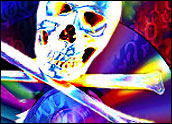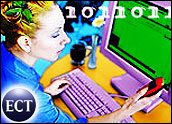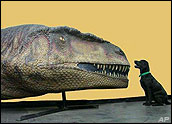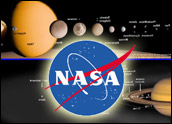
Nintendo this week released an American version of Japan’s No. 1 brain training game, “Brain Age: Train Your Brain in Minutes a Day,” for the Nintendo DS.
Japanese neurologist Ryuta Kawashima, who maintains that regularly doing easy and fast-paced mental activities can keep brains young, strong and sharp, worked with Nintendo to create the brain exerciser.
“Everyone, young or old, wants to try to get a mental edge, and we’ve seen that Brain Age appeals to a broad demographic of people. Just imagine: a video game that kids, parents and grandparents can all play together,” said J.C. Smith, manager of corporate affairs for Nintendo of America.
Gym for the Brain
The game has been likened to a gym, except that the players stay cool and let the brain do the hard work. Instead of crunches, they solve math problems such as counting people going into and out of a house at the same time.
Rather than lifting weights, they draw pictures; they trade counting reps for working out Sudoku puzzles, and they wrestle with the Stroop test — in which players name the color of the word that appears on the screen. Sounds easy, but not when you’re looking at the word “RED” in blue and the mind wants to say “red.”
Users begin with a series of tests to assess their “brain age.” Then they can engage in 14 activities, all designed to stimulate the brain. Nintendo states that adopting a regular routine of doing these exercises for minutes a day will lower a user’s brain age.
Playing games like Brain Age can help baby boomers and senior citizens keep their brains active, says Elizabeth Zelinski, Ph.D., dean and executive director of University of Southern California’s Leonard Davis School of Gerontology. Zelinkski recommends that mental stimulation be part of a healthy lifestyle along with a good diet and regular exercise.
Not Your Grandkids’ Nintendo Anymore
Brain Age is the latest of Nintendo’s nontraditional Nintendo DS products, but it is just one of several games developed for consumers outside the traditional gamer demographic. Nintendogs lets players take care of a pet without worrying about accidents. In Electroplankton, users experience art and music.
“You don’t need to know anything about videogames to jump right in,” Nintendo’s Smith told TechNewsWorld. “After turning the system on, there are no buttons to press or moves to master.”
Will Brain Age draw a different generation of gamers into the fold? The oldest of the baby boomers — an attractive market because of its large population — are turning 60 this year. “The older market is just one group that we’re reaching out to, and they represent new territory for the video game industry,” Smith acknowledged, but “people of all ages like crossword puzzles and challenging their brains.”
At least one Texas grandmother has requested a Nintendo DS for Mother’s Day, thanks to Brain Age. “I read an article in a newspaper about puzzles and games, and whether they help keep your mind sharp,” said Karen Kaplan. “The article talked about a game in Japan that’s selling like crazy and would be coming to the U.S.” Time will tell if other seniors follow her lead.
The game takes advantage of the DS’ handwriting and voice recognition tools. It also reads classic literature to its users. Rated E for Everyone, Brain Age retails for about US$20, lower than the average price of a Nintendo DS game. Nintendo plans to release a sequel, “Big Brain Academy,” in June.




















































